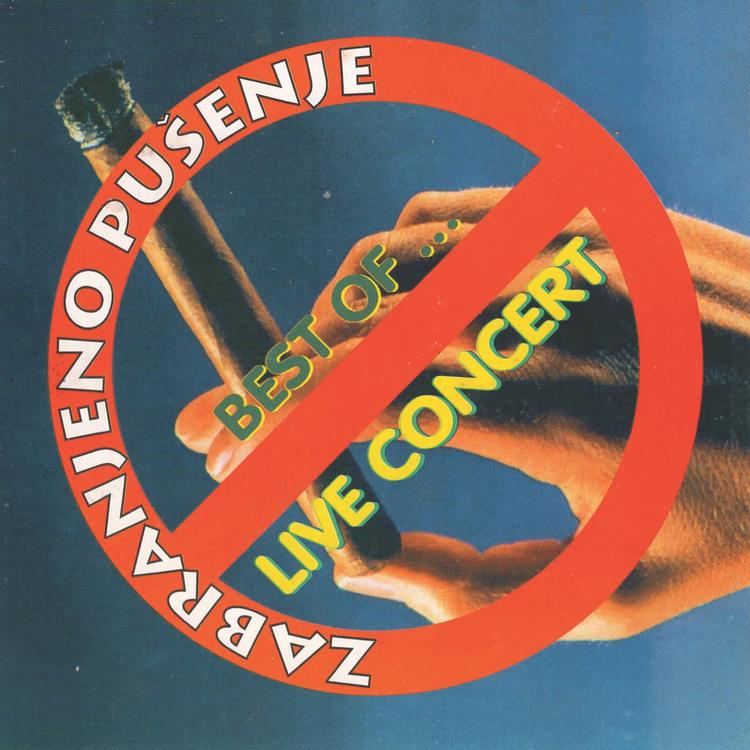
Artist Overview
# Rock
# Pop
# Punk Rock
Zabranjeno pušenje is a Bosnian rock band formed in Sarajevo (then Yugoslavia, now Bosnia and Herzegovina) in 1980.The group's musical style primarily consists of a distinctive garage rock sound with folk influences, often featuring innovative production and complex storytelling.Currently, the band consists of founding member, vocalist and guitarist Sejo Sexon, longtime drummer Branko Trajkov, guitarist Toni Lović, bassist Dejan Orešković, violinist and keyboardist Robert Boldižar, and saxophonist and flutist Lana Škrgatić, only female member. Band was formed contrary to the then prevalent Yugoslav punk rock and new wave, closely associated with the New Primitivism cultural movement and the radio and television satire and sketch comedy show Top lista nadrealista.They were one of the most popular musical acts of the 1980s in Yugoslavia, selling hundreds of thousands of records.Many times they went into trouble with authorities for their, usually mild and sympathetic, criticism of the socialist system, and the habit of making light of issues considered sensitive at the time.The band's first lineup, originally named Pseudobluz bend Zabranjeno Pušenje, featured guitarist Sejo Sexon and vocalist Nele Karajlić, alongside drummers Fu-Do then Šeki Gayton, bassist Munja Mitić, keyboardist Seid Mali Karajlić, saxophonist and flutist Ognjen Gajić, guitarist Mustafa Čengić and synthesizerist Zoran Degan.Their debut studio album Das ist Walter (1984) was initially released in the small print, the final count was 100,000 copies sold, setting a record for exceeding the initial release by 30 times.Their subsequent album Dok čekaš sabah sa šejtanom (1985), also released through Jugoton, was boycotted by the mainstream media due to troubles with Communist authorities.In 1986, Šeki Gayton, Mitić and Čengić chose to leave the group, while drummer Faris Arapović, bassist Minka, guitarist Kowalski and keyboardist Dado Džihan joined in. During the second half of 1980s with the new lineup of the band released two albums Pozdrav iz zemlje Safari (1987) and Male priče o velikoj ljubavi (1989) through Diskoton. During 1992, band split followed the Bosnian War, Nele Karajlić continued working in Belgrade under the names Nele Karajlić & Zabranjeno pušenje and Emir Kusturica & The No Smoking Orchestra, while Sejo Sexon and other members rejoined in Sarajevo, using the original name, continuing band's career released the fifth studio album Fildžan viška (1997) with the changed lineup.The band's 1990s lineup alongside Sejo Sexon featured leader of the New Primitivism movement Elvis J. Kurtović, vocalist Marin Gradac, guest on the 1987 album bassist Dragan Bobić, guitarist Sejo Kovo and violinist Bruno Urlić.After one temporary drummer, Branko Trajkov joined the group in 1996.The same lineup recorded the album Agent tajne sile (1999).In 2000, Kurtović, Kovo and Gradac left the group, while guitarist and producer Dragianni joined the group and played on their subsequent album, Bog vozi Mercedes (2001).That album was followed five years later by Hodi da ti čiko nešto da (2006).In the mid-2000s, Dragianni, Bobić and Urlić chose to leave the group, while guitarist Toni Lović, bassist Dejan Orešković and violinist Robert Boldižar came to their seats.The band's ninth studio album, Muzej revolucije (2009), was released on the Anniversary of the October Revolution in almost all former Yugoslav countries, on the same day.The band released their tenth studio album, Radovi na cesti, in 2013.